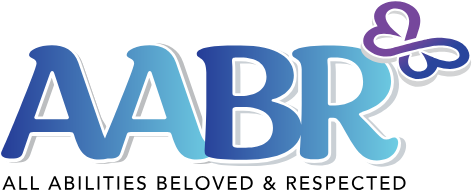-
Families, Systems, and Shared Solutions: Rebuilding Trust in Disability Services – Lessons from the OPWDD–Georgetown Partnership
I didn’t start as a systems guy. I started as a dad in denial, with no roadmap, no acronyms, and no patience for policy. Then our family hit rough water. Puberty flipped the table, literally. Supports vanished just when we needed them most. Person-centered practice became paper-centered...
-
Large-Scale Study Finds Autistic Youth Far More Likely to Be Hospitalized for Mental Health Conditions
Authors Call for Multifaceted Approach in Addressing Critical Care Gap Autistic youth are hospitalized for mental health reasons at dramatically higher rates than their non-autistic peers, according to a new peer-reviewed study led by Catalight researchers Ben Pfingston and Lindsey Sneed, Ph.D.,...
-
Autism Science Foundation’s Next Gen Sibs Project Expands with Support from Aligning Research to Impact Autism (ARIA)
University of Miami and King’s College London added as new sites On October 14, 2025, The Autism Science Foundation (ASF), a nonprofit organization dedicated to supporting and funding innovative autism research, announced it would expand its Next Gen Sibs Project from six to eight university...
-
NY State Governor Hochul Announces $25 Million to Expand Access to Health Care for People With Developmental Disabilities
Grants Will Improve Access to and Quality of Physical Health Care Services in ‘Health Care Deserts’ Delivers on Governor Hochul’s State of the State Proposal to Create Regional Disability Health Clinics On Thursday, September 25th, 2025, Governor Kathy Hochul announced that $25 million...
-
Coalition of Autism Scientists Push Back Against HHS Claims on Tylenol and Leucovorin
Autism Spectrum News Position Statement: Autism Spectrum News (ASN) is committed to providing accurate, evidence-based information to the autism community. In line with this commitment, we fully support the positions outlined by the Coalition of Autism Scientists regarding recent HHS claims...
-
Drugs, Causes, Treatments, Cures: Powerful Words That Should Be Administered Cautiously
Today in the United States, the government has renewed its focus on autism, and on the increasing number of individuals diagnosed with it. Many professionals who have devoted their lives to autism science and advocacy rightly have deep concerns about false promises and misleading analyses recently...
-
My Son Turns 21: Autism, Milestones, and Growing Up
The restaurant is busy. Someone at the table behind us laughs loudly. Outside, a spring drizzle falls from the sky. May. A fickle month in New England. Yellow sun one day, metallic clouds the next. My son Jack sits next to his father. He studies the menu, sliding his finger along the drink...
-
The Other Side of Autism: Intense World Theory
Social difficulties in autism are usually attributed to poor theory of mind. That’s not always the case. In my early thirties, I was diagnosed with what was then known as Asperger’s syndrome. Like many on the spectrum who receive a diagnosis late in life, this was something of a revelation,...
-
Emergency Preparedness for Autistic Individuals: What First Responders, Medical Professionals and Families Need to Know
The rise in the diagnosis of autism spectrum disorder will mean a rise in first responders and medical professionals interacting with autistic individuals during emergency situations. This makes it essential for communities and healthcare facilities to prepare and train their personnel in how to...
-
Creating a Personal Support Network: A Suicide Prevention Resource for Autistic Individuals
Being an autistic person living in a non-autistic majority presents many unique challenges. Lived experience describes daily trials with at times overwhelming stimulation, miscommunication, and emotional struggles, combined with reduced coping capacity, especially during crises. Differences in how...
-
Emergency Readiness for Autistic Individuals: Evidence-Based Application of Visual Schedules
Individuals with autism often experience heightened sensitivity to sensory input, difficulty with abstract concepts, and communication barriers, which can complicate emergency responses. Research indicates that children with autism have higher rates of emergency service utilization than their...
-
Advancing Community Inclusion for Individuals with ID/DD: History, Challenges, and the Role of Caregivers
Community-based living for people with intellectual and/or developmental disabilities (ID/DD) has improved since the mid-20th century, in the context of a broader civil rights movement. A more discrete focus on the rights of individuals with disabilities arose during the 1960s and 1970s under John...
-
From Crisis Response to Proactive Planning: Building Sustainable Housing for Autistic Adults
Sarah Pope, CEO of SOS Care, spent years watching families in South Carolina face an impossible choice: Keep their autistic adult children at home indefinitely or place them in the next available group home regardless of fit. As a parent, she knew this system was failing everyone. So, she acted by...
-
Illuminating the Housing Crisis and Needs of Adults with Autism and I/DD
Access to safe, affordable and inclusive housing remains one of the most urgent challenges for adults with autism and/or intellectual and developmental disabilities (I/DD). Recognizing this, a bold initiative from the First Place Global Leadership Institute (First Place Global) informs the...
-
Broadening Employment Opportunities for Adults with Autism and/or Intellectual/Developmental Disabilities (I/DD): A Call to Action
Every morning at First Place–Phoenix, a supportive housing property in Midtown Phoenix, Arizona for adults with autism and/or intellectual/developmental disabilities (I/DD), residents head out with determination and hustle. Some volunteer. Some hold part-time or full-time jobs. Others are still...
-
Martin’s Road Back: How Stability, Connection, and Community Made Recovery Possible
When Autism Spectrum News invited stories about supporting people with developmental disabilities through unique challenges, one name immediately came to mind: Martin R. This past weekend, Martin walked through the doors of his new home on City Island. For him, it wasn’t just a change of address,...
-
At the Intersection of Autism and Gender Diversity: Supporting Neuro-Gender Queer Youth
Gender-diverse and neurodiverse youth share more than just the word ‘diverse.’ These groups are not mutually exclusive populations but instead have considerable overlap. Estimates of the co-occurrence of neurodiversity and gender diversity vary. However, some research suggests that autistic...
-
The Trauma of Relocation: Understanding the Autistic Experience
My military family moved house seven to eight times by the time I turned 8, and 11 times before I was 18. I didn’t yet have a diagnosis of Autism or ADHD, but I was diagnosed with Dyslexia and related learning disabilities at age 7 and had started special education. Then we moved. I don’t...
-
Early Intervention and Its Lifelong Impact: Kyle’s Story
There is a growing body of research documenting the positive impact early intervention has on the lives of individuals on the autism spectrum. The research spans over 25 years of practice and has demonstrated improvements in IQ, language, adaptive behavior, social communication, cognitive and daily...
-
Identifying and Understanding Risk Factors for Sexual Victimization in Women with Autism Spectrum Disorder
While individuals with autism spectrum disorder (ASD) report similar levels of interest in romantic connections to their neurotypical peers (Hancock et al., 2016; Fernandes et al., 2016), autistic individuals may experience more difficulty establishing and maintaining healthy and safe relationships...
-
When the Going Gets Tough: How to Foster Safety and Stability During Challenging Situations
The journey through autism and disabilities is certainly complex – filled with excitement and achievements, as well as challenges and uncertainty. Some challenges may relate directly to the disabilities themselves, such as navigating insurance denials for essential therapies or medications,...
-
Beyond Fun: How Summer Programs Build Executive Function, Social Confidence, and Independence
Summertime has so much potential. With more flexible schedules and a break from traditional classes, your student can focus on what matters most in their season of development. Autistic elementary age children and middle schoolers may benefit from additional focus on building or practicing social...
-
We Can Get Through This – How Autistic Individuals Can Cope with Massive Burnout
It is not surprising that burnout is one of the toughest things that autistics face in their lives. Granted, each autistic suffers from burnout differently, but it is a difficult situation nonetheless. Burnout can affect the ability to cope with sensory sensitivities, manage executive...
-
Using Physical Management in Safety Care: The Struggles of Group Home Direct Support Staff
Group homes often serve as critical places for individuals with developmental disabilities, like autism spectrum disorder (ASD), who require specialized support and care (JEDU Care Services, n.d.). The individuals responsible for this support, known as Direct Support Staff, work on the front lines,...
-
Leadership in Action: Dr. Isaac Mawuko Adusu’s Impact on Adults with Intellectual and Developmental Disabilities
In a significant stride toward enhancing care for adults with intellectual and developmental disabilities, Dr. Isaac Mawuko Adusu, author of the article “Using Physical Management in Safety Care: The Struggles of Group Home Direct Support Staff,” published in this edition of the Autism Spectrum...
-
Fostering Safety and Stability for Autistic Adults During the Transition from College to Career
For many young adults, the shift from college to career is a time of excitement and possibility. But for autistic adults, it can also bring a unique set of challenges, especially when systems of support that existed in educational settings begin to fall away. Without intentional planning,...
-
Co-Occurring Conditions in Autism: Understanding the Overlap with Anxiety, Depression, and More
For many individuals on the autism spectrum, navigating life often involves managing more than just the core characteristics of autism. Co-occurring conditions — also known as comorbidities — are extremely common. These overlapping conditions can complicate diagnosis and care, especially for...
-
Supporting Autistic Children in the Child Welfare System
Child welfare system (CWS) involvement is extremely stressful for families, particularly those with autistic children. Research has shown that substantially higher numbers of children with autism are reported to and investigated by child protective services. Some evidence suggests that autistic...
-
Hey, ADHD Girls Like Me!…BOX!
This article has been republished with permission from Neurodiversity Press. The original article, published on August 13, 2025, can be viewed at www.neurodiversitypress.com/2025/08/13/hey-adhd-girls-like-me-box. Gina Moravcik, a speech-language pathologist who works with autistic adults, shares...
-
Helping Autistic Students Stay Calm During School Lockdowns and Drills
Emergency drills, such as fire drills, lockdowns, and active shooter simulations, are an important part of school safety. But for students on the autism spectrum, these events can be incredibly stressful and overwhelming. The sudden loud noise, sensory overload, and unexpected changes can cause...
-
Neurodiverse Couples: Tools for Reconnecting After Conflict
Relationships naturally have ups and downs. The goal of neurodiverse couples therapy is not to be conflict-free but rather to build skills to both approach difficult topics more intentionally and resolve conflict more effectively. By building these skills, couples can minimize the longer-term...
-
The Day I Learned That Stepping Away Isn’t Giving Up – It’s How Autistic Brains Navigate Change
Whenever I have had a big change coming, I tell myself "I can handle this." I have always been good at problem-solving, at figuring things out methodically. Moving away from home for the first time to live at a program for young adults with autism? No problem – I was prepared to learn everything...
-
Safe Spaces, Strong Systems: Neuro-Affirming Autism Services in Eastern India
In Eastern India, families navigating autism diagnoses often face systemic instability, long waitlists and fragmented services. Desun Hospitals has responded by launching Mindspace Academy, one of the region’s first hospital-based Autism and Neurodevelopment Support Centers, aiming to redefine...
-
Stories of Autism in the Indian American Community: Rebuilding Life After Grief
Being an immigrant in the United States is a unique experience of navigating two worlds/cultures. I personally take great pride in being a second-generation Indian American. I’ve always loved the food, media, warmth, and hospitality. However, it hasn’t always been easy. My experience of being...











